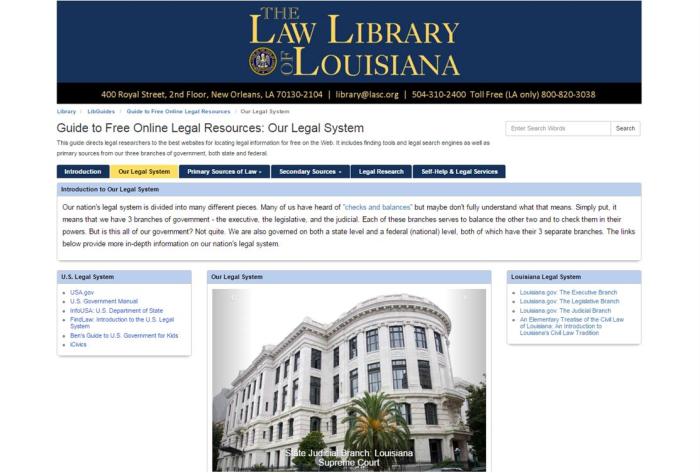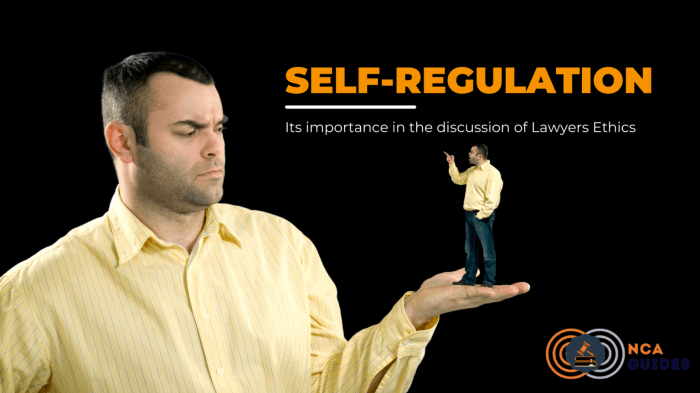What are the educational resources for self-help legal representation – In the realm of self-help legal representation, accessing educational resources is paramount. This article unveils a treasure trove of options to empower individuals seeking legal guidance without breaking the bank. From online platforms to legal aid organizations and law libraries, we’ll navigate the landscape of resources available to assist you in your legal endeavors.
As we delve into the intricacies of self-help legal representation, we’ll explore the benefits and limitations of each resource, ensuring you have the knowledge to make informed decisions about your legal journey. Whether you’re facing a family law dispute, criminal charges, or civil litigation, this guide will equip you with the tools to confidently represent yourself in court.
Introduction: What Are The Educational Resources For Self-help Legal Representation
Self-help legal representation empowers individuals to navigate legal matters without the expense of an attorney. It is a crucial tool for those facing legal issues but lacking access to traditional legal services.
The need for self-help legal resources is evident. In the United States alone, over 80% of low-income households face legal problems without legal representation. This lack of access to justice creates a significant barrier to resolving legal issues, resulting in negative consequences for individuals and communities.
Online Legal Resources
The internet has become a valuable resource for people seeking legal information and assistance. There are a number of popular online platforms that provide free or low-cost legal information, forms, and advice.
One of the benefits of using online legal resources is that they are often more accessible than traditional legal services. You can access online resources from anywhere with an internet connection, and you don’t have to pay for an attorney’s time.
Legal Aid Websites
- Legal Aid Society: The Legal Aid Society is a non-profit organization that provides free legal services to low-income New Yorkers. Their website offers a variety of resources, including information on housing, family law, and immigration.
- National Legal Aid & Defender Association: The National Legal Aid & Defender Association is a non-profit organization that provides training and support to legal aid programs across the country. Their website offers a variety of resources, including information on finding a legal aid program in your area.
Online Legal Forms
- LawHelp.org: LawHelp.org is a website that provides free legal forms and information. The website is operated by the Legal Services Corporation, a non-profit organization that provides funding to legal aid programs across the country.
- Nolo: Nolo is a company that publishes books and software on legal topics. The Nolo website offers a variety of free legal forms, as well as paid legal services.
Online Legal Advice
- Avvo: Avvo is a website that connects users with attorneys. The website offers a variety of free legal advice, as well as paid legal services.
- LegalZoom: LegalZoom is a company that provides online legal services. The website offers a variety of legal advice, as well as paid legal services.
While online legal resources can be a valuable resource, it is important to be aware of their limitations. One of the biggest limitations is that online resources cannot provide the same level of personalized advice that you would get from an attorney.
If you have a complex legal issue, it is important to consult with an attorney.
Legal Aid Organizations

Legal aid organizations are non-profit entities that provide free or low-cost legal services to individuals in need. These organizations are committed to ensuring equal access to justice for all, regardless of their financial circumstances.
To qualify for legal aid, individuals must meet certain eligibility criteria, which typically include income and asset limits. The application process for legal aid varies depending on the organization, but generally involves submitting an application and providing documentation to verify eligibility.
Types of Legal Aid Organizations
- Legal Services Corporations (LSCs): LSCs are non-profit organizations that receive funding from the federal government to provide legal aid to low-income individuals. LSCs operate in every state and territory in the United States.
- Pro bono Law Firms: Pro bono law firms are private law firms that provide free legal services to low-income individuals. Pro bono attorneys donate their time and expertise to help those in need.
- Legal Aid Societies: Legal aid societies are non-profit organizations that provide legal aid to low-income individuals in a specific geographic area.
Benefits of Legal Aid Organizations
- Access to Justice: Legal aid organizations provide access to justice for individuals who would otherwise be unable to afford legal representation.
- Expertise: Legal aid attorneys are experts in their field and can provide high-quality legal representation to their clients.
- Affordability: Legal aid services are free or low-cost, making them affordable for low-income individuals.
Law Libraries and Legal Clinics
Law libraries and legal clinics are essential resources for individuals and communities seeking access to legal information and assistance. They provide a range of services and resources that empower people to understand their legal rights and responsibilities, navigate complex legal systems, and advocate for themselves.
Reference and Research Assistance
Law libraries and legal clinics offer reference and research assistance to individuals seeking legal information. They have access to a vast collection of legal materials, including statutes, case law, legal treatises, and online databases. Librarians and legal clinic staff can help individuals identify and retrieve relevant legal materials, conduct legal research, and understand the legal implications of their situation.
Books and Publications
Books and publications offer a wealth of information and guidance for individuals seeking to represent themselves in legal matters. While online resources provide convenience and accessibility, print resources have their own advantages, such as the ability to mark, highlight, and make notes, which can enhance comprehension and retention.
Here are some highly recommended books and publications for self-help legal representation:
Nolo’s Essential Guide to Representing Yourself in Court
- Provides comprehensive coverage of the legal process, from filing a lawsuit to representing oneself at trial.
- Written in clear and accessible language, with step-by-step instructions and sample forms.
- Available in print and e-book formats.
Represent Yourself in Court: How to Prepare & Try a Winning Case
- Focuses on the practical aspects of representing oneself in court, including jury selection, opening statements, and cross-examination.
- Includes real-life case studies and advice from experienced attorneys.
- Available in print and audio formats.
Legal Research for the Pro Se Litigant: A Guide to Finding and Using the Law
- Provides guidance on how to conduct legal research and find relevant laws and case precedents.
- Includes a comprehensive directory of legal resources, including law libraries, legal aid organizations, and online databases.
- Available in print and e-book formats.
The Pro Se Litigator’s Practice Manual
- A comprehensive guide to all aspects of self-representation in federal court.
- Includes detailed instructions, checklists, and sample pleadings.
- Available in print and e-book formats.
How to Win Your Case Without a Lawyer: The Essential Guide to Representing Yourself in Court
- A step-by-step guide to representing oneself in small claims court.
- Includes tips on preparing your case, presenting evidence, and negotiating a settlement.
- Available in print and e-book formats.
Legal Forms and Templates

Using legal forms and templates is crucial for self-help legal representation. These documents provide a framework to navigate legal processes effectively, ensuring that essential information is accurately presented. They also help individuals avoid costly mistakes and delays.
Reputable Sources for Legal Forms
Numerous reputable sources offer free or low-cost legal forms and templates. These include:
- American Bar Association (ABA)
- Legal Services Corporation (LSC)
- National Legal Aid & Defender Association (NLADA)
- State Bar Associations
- LawHelp.org
These organizations provide a wide range of legal forms covering various legal matters, such as wills, trusts, contracts, and divorce papers. By utilizing these resources, individuals can access professional-quality legal documents without incurring significant expenses.
Legal Research Tools

Self-help legal representation requires access to reliable and efficient legal research tools. These tools empower individuals to navigate complex legal systems and find relevant information pertaining to their specific legal issues.
Types of Legal Research Tools and Databases
Various types of legal research tools and databases are available, each offering unique features and benefits.
Commercial Databases
* LexisNexis: Comprehensive database with extensive case law, statutes, regulations, and legal analysis.
Westlaw
Another comprehensive database known for its user-friendly interface and powerful search capabilities.
Government Databases
* PACER (Public Access to Court Electronic Records): Provides access to federal court documents, including case dockets, pleadings, and opinions.
RECAP (Resource Center for Access to Public Records)
Offers access to state and local court records, as well as other public records.
Non-Profit Databases
* Legal Aid Society: Provides free and low-cost legal information, including self-help guides and online resources.
Pro Se Law Library
Offers a curated collection of legal resources and materials designed specifically for self-represented individuals.
Choosing the Right Tool
The choice of legal research tool depends on the specific legal issue and the user’s needs. Commercial databases offer the most comprehensive coverage but come with subscription fees. Government databases provide access to public records, while non-profit databases focus on providing free and accessible legal information.
Advanced Search Techniques
Effective legal research involves utilizing advanced search techniques to narrow down results and find more relevant information. These techniques include using Boolean operators (AND, OR, NOT), proximity searches, and field-specific searches.
Evaluating Credibility and Reliability
It’s crucial to evaluate the credibility and reliability of legal information obtained through research tools and databases. Consider the source of the information, the author’s credentials, and the date of publication. Cross-referencing information from multiple sources helps ensure accuracy and reliability.
Online Legal Forums and Communities
Online legal forums and communities provide a valuable platform for self-represented litigants to connect with others facing similar legal challenges. These online spaces offer a wealth of information, support, and guidance, empowering individuals to navigate the complexities of the legal system.Participating in online legal forums and communities offers numerous benefits.
Self-represented litigants can:
- Connect with others in similar situations:Share experiences, insights, and strategies with other self-represented litigants who understand the unique challenges of representing oneself in court.
- Access legal information and advice:Obtain valuable legal information, advice, and guidance from experienced legal professionals and fellow self-represented litigants.
- Learn about legal procedures and strategies:Gain insights into legal procedures, court processes, and effective litigation strategies from others who have successfully navigated the legal system.
- Find emotional support and encouragement:Connect with a community of individuals who understand the emotional challenges of self-representation and provide support and encouragement.
However, it is important to note some limitations associated with participating in online legal forums and communities:
- Accuracy of information:While many online legal forums and communities strive to provide accurate and reliable information, it is essential to verify the credibility of the information obtained.
- Legal advice:Online legal forums and communities are not a substitute for professional legal advice. It is crucial to consult with a licensed attorney for personalized legal guidance and representation.
- Time commitment:Participating in online legal forums and communities can be time-consuming, as it requires actively engaging with others and researching relevant topics.
- Anonymity:While anonymity can be beneficial for sharing sensitive information, it can also make it difficult to verify the credibility of individuals providing advice.
Despite these limitations, online legal forums and communities can be an invaluable resource for self-represented litigants. By carefully evaluating the information obtained and seeking professional legal advice when necessary, individuals can leverage these online spaces to enhance their understanding of the legal system and navigate their legal challenges more effectively.
Technology for Self-Help Legal Representation
In the realm of self-help legal representation, technology has emerged as a powerful ally. With the advent of apps, software, and online platforms, individuals can now navigate the legal system more efficiently and effectively.
These technological tools empower individuals to prepare legal documents, file court forms, and manage their cases without the need for an attorney. By streamlining the process and providing user-friendly interfaces, technology has made self-help legal representation more accessible and affordable.
Apps and Software
Numerous apps and software programs are available to assist individuals with various legal tasks. These tools offer step-by-step guidance, document templates, and access to legal information. They can be particularly useful for tasks such as:
- Preparing wills and estate planning documents
- Drafting contracts and agreements
- Filing small claims and landlord-tenant disputes
- Accessing legal research and case law
Online Platforms, What are the educational resources for self-help legal representation
Online platforms provide a comprehensive suite of resources for self-help legal representation. These platforms often offer a combination of document preparation tools, legal research databases, and community forums. They empower individuals to:
- Connect with other individuals facing similar legal challenges
- Access pro bono legal advice and assistance
- File court documents electronically
- Stay informed about legal updates and changes
Ethical Considerations
Individuals engaging in self-help legal representation must adhere to specific ethical considerations and responsibilities. It’s crucial to recognize the limitations of self-help and seek professional legal advice when necessary. Understanding the potential risks and benefits of self-representation empowers individuals to make informed decisions about their legal matters.
Self-help legal representation may be appropriate in certain situations, such as minor legal issues or matters where individuals have sufficient knowledge and resources. However, it’s essential to exercise caution and consult an attorney for complex legal matters or situations involving significant legal consequences.
Importance of Seeking Professional Legal Advice
Seeking professional legal advice is crucial in complex legal matters or situations involving substantial legal implications. Attorneys are trained professionals with specialized knowledge and experience who can provide tailored guidance and representation. Their involvement can help individuals navigate legal complexities, protect their rights, and achieve favorable outcomes.
Role of Legal Aid Organizations and Pro Bono Services
Legal aid organizations and pro bono services play a vital role in providing access to legal assistance for those in need. These organizations offer free or low-cost legal representation to individuals who meet certain eligibility criteria. They provide invaluable support to underprivileged communities and individuals who may otherwise lack access to legal services.
Success Stories
Individuals representing themselves in legal proceedings have achieved remarkable successes. Their journeys offer valuable insights into the challenges and strategies involved in self-help legal representation.
These case studies highlight the diverse experiences of individuals who have successfully navigated complex legal systems. They demonstrate the importance of preparation, perseverance, and resourcefulness.
Case Studies
The following table summarizes key challenges and strategies employed by individuals who successfully represented themselves:
| Case Study | Challenges Faced | Strategies Employed |
|---|---|---|
| Case Study 1 | Lack of legal knowledge, difficulty gathering evidence | Sought guidance from online resources, consulted with experts, organized documents meticulously |
| Case Study 2 | Limited resources, opposing party represented by attorney | Represented themselves with confidence, focused on presenting a strong case, sought support from pro bono organizations |
These case studies provide inspiration and guidance for individuals considering self-help legal representation.
Limitations and Risks
While self-help legal representation can be a viable option for certain individuals, it is crucial to acknowledge its limitations and potential risks. It is essential to understand the complexities of the legal system and the potential consequences of representing oneself in court.
One of the primary limitations of self-help legal representation is the lack of legal expertise and experience. Individuals who choose to represent themselves may not have the necessary knowledge and skills to navigate the complexities of the legal system effectively.
This can lead to mistakes or omissions that could have severe consequences, such as losing a case or facing legal penalties.
Situations to Seek Professional Legal Assistance
There are certain situations where it is highly advisable to seek professional legal assistance. These include cases involving complex legal issues, such as family law, criminal law, or estate planning. In such cases, the legal stakes are often high, and the potential consequences of making mistakes can be significant.
It is crucial to consult with an experienced attorney who can provide guidance and representation to protect your rights and interests.
– Best Practices for Self-Help Legal Representation

Engaging in self-help legal representation requires a well-informed and organized approach. By adhering to best practices, individuals can increase their chances of successfully navigating the legal system on their own.
Preparation
Thorough preparation is essential for self-help legal representation. Gather all relevant evidence, including documents, witness statements, and expert opinions. Research case law and legal precedents to support your arguments. File all necessary documents on time to avoid delays or penalties.
Court Appearance
When appearing in court, it is crucial to dress professionally and maintain a respectful demeanor. Be organized and present your case clearly and concisely. Anticipate opposing arguments and prepare your responses accordingly.
Argument Presentation
Effective argument presentation involves using clear and persuasive language. Provide specific examples and evidence to support your claims. Use persuasive techniques, such as logical reasoning, emotional appeals, and analogies, to strengthen your case.
Additional Tips
- Consider consulting with an attorney for guidance, even if you are not able to retain their services.
- Seek support from legal aid organizations or self-help centers for assistance and resources.
- Stay informed about court procedures and legal updates to ensure you are up-to-date on the latest developments.
Additional Resources
In addition to the resources mentioned above, there are numerous other organizations, websites, and publications that provide support and guidance for self-help legal representation. These resources can be categorized into the following groups:
Legal Aid Organizations
Legal aid organizations provide free or low-cost legal services to low-income individuals and families. They can help with a variety of legal issues, including housing, family law, consumer protection, and immigration.
- Legal Services Corporation: https://www.lsc.gov/
- National Legal Aid & Defender Association: https://www.nlada.org/
- American Bar Association Center for Pro Bono: https://www.americanbar.org/groups/pro_bono/
Online Legal Resources
Online legal resources provide information and guidance on a variety of legal topics. They can be a helpful resource for people who are representing themselves in court or who simply want to learn more about their legal rights.
- Nolo: https://www.nolo.com/
- LawHelp.org: https://www.lawhelp.org/
- LegalZoom: https://www.legalzoom.com/
Self-Help Legal Guides
Self-help legal guides provide step-by-step instructions on how to handle a variety of legal matters. They can be a helpful resource for people who want to represent themselves in court or who simply want to learn more about their legal rights.
- How to Win in Small Claims Court by Paul Bergman
- The Complete Idiot’s Guide to Representing Yourself in Court by John Ventura
- Represent Yourself in Court: A Step-by-Step Guide by Jay Foonberg
Legal Clinics
Legal clinics provide free or low-cost legal services to low-income individuals and families. They are typically staffed by law students who are supervised by licensed attorneys. Legal clinics can help with a variety of legal issues, including housing, family law, consumer protection, and immigration.
- American Bar Association Law Student Division: https://www.americanbar.org/groups/law_student_division/
- National Association of Legal Services Agencies: https://www.nalsla.org/
- National Legal Aid & Defender Association: https://www.nlada.org/
Pro Bono Attorneys
Pro bono attorneys provide free legal services to low-income individuals and families. They can help with a variety of legal issues, including housing, family law, consumer protection, and immigration.
- American Bar Association Center for Pro Bono: https://www.americanbar.org/groups/pro_bono/
- National Legal Aid & Defender Association: https://www.nlada.org/
- Pro Bono Net: https://www.probono.net/
Final Wrap-Up
Remember, self-help legal representation is a viable option for many individuals. By harnessing the power of educational resources and understanding your rights, you can effectively navigate the legal system and achieve favorable outcomes. Embrace the knowledge and tools at your disposal, and let this guide be your beacon as you embark on your self-representation journey.
General Inquiries
What are the benefits of using online legal resources for self-help?
Online legal resources provide convenience, affordability, and access to a wealth of information. They can assist you in understanding legal concepts, drafting documents, and researching case law.
How do I find reputable legal aid organizations?
Reputable legal aid organizations are often affiliated with non-profit groups or government agencies. Look for organizations with a proven track record of providing free or low-cost legal services to individuals in need.
What types of services do law libraries and legal clinics offer?
Law libraries and legal clinics offer a range of services, including reference assistance, document retrieval, access to legal databases, and pro bono legal advice. They can also provide guidance on navigating the legal system and representing yourself in court.